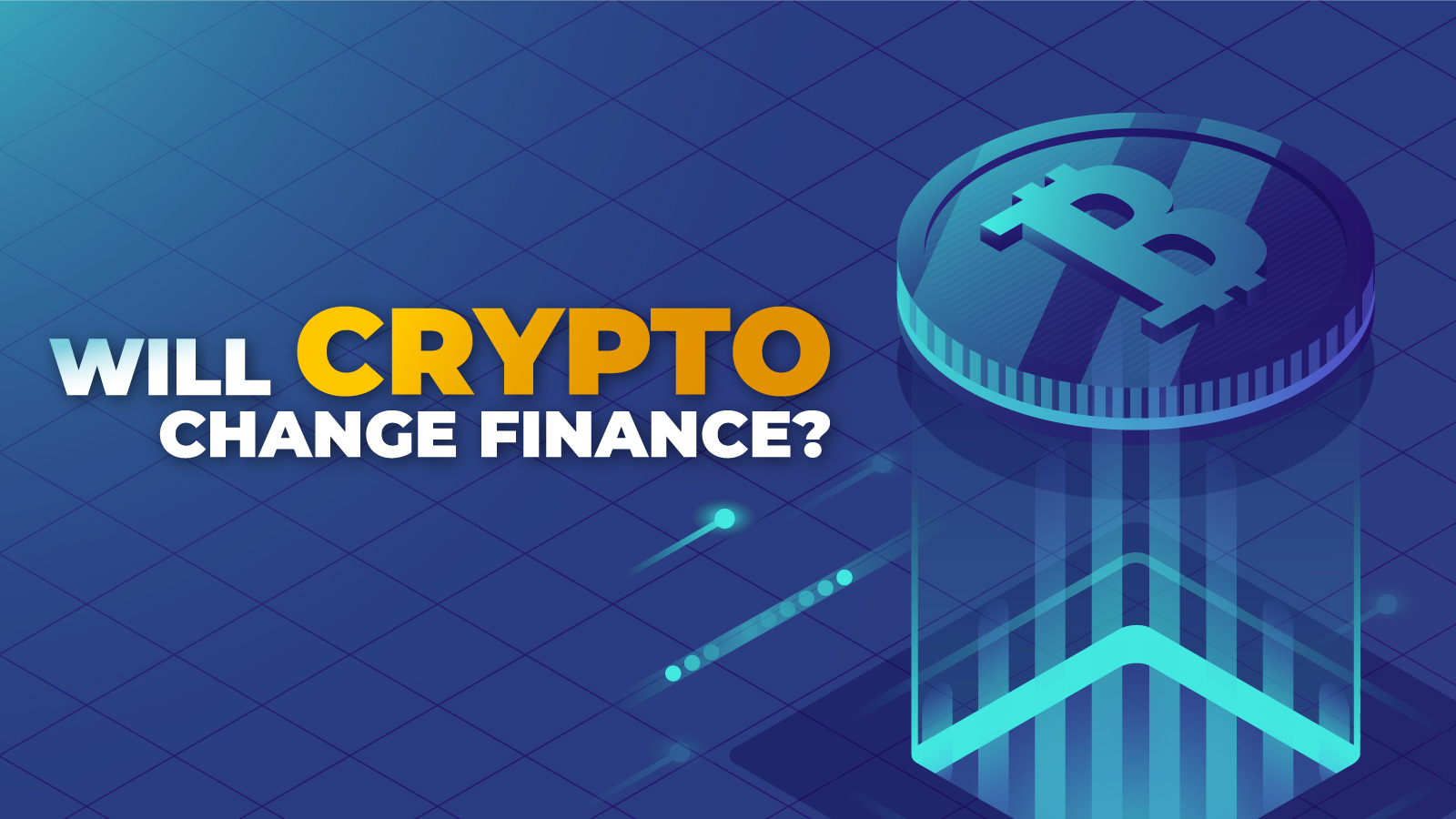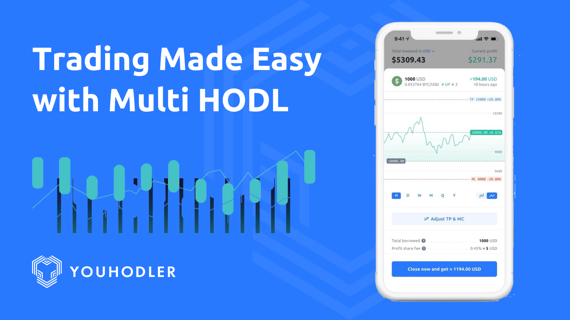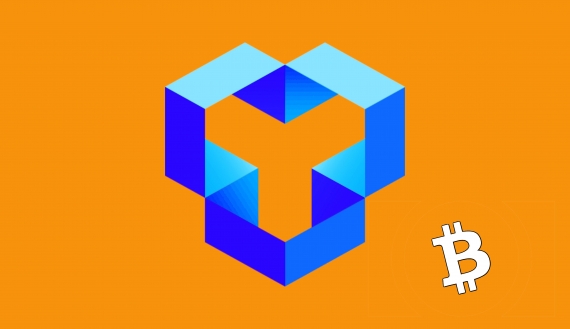
How Cryptocurrencies are Changing Finance: Making (Some) Sense of Blockchain
Blockchain, the tech powering cryptocurrencies, was brought to the fore after the Lehman Brothers' collapse. The whitepaper by Satoshi Nakamoto proposed a different financial model where intermediaries are removed, and users can exchange funds in a secure, trustless peer-to-peer way. The well-timed proposition endeared many developers and financial moguls, essentially bringing forth Bitcoin, and a bit later, Ethereum.
While the former ushered in the new wave of new money, the latter introduced a new financial services ecosystem easily accessible to anyone with a smartphone--Decentralised Finance (DeFi). These service platforms have recorded substantial growth in value and user base. There is more to them than the bull runs and the endless jargon plastered all over social media today, and that's what we'll be looking at with minimal technical jargon.
How Cryptocurrencies are Changing Finance: Decentralized Finance
Decentralized finance (DeFi) is a financial ecosystem that enables people to access several financial services in a decentralized way using cryptocurrencies. With a wide range of service platforms and services, DeFi is arguably the biggest thing in the crypto market today, with Ethereum as the prime service provider.
What do you mean by Ecosystem and Service Platform?
To understand how Ethereum serves as a decentralized financial ecosystem and service platform, it would be helpful to think of another software platform - Android OS.
Android OS is essentially the operating system for Android devices. The ecosystem brings together two groups of people --developers who build various apps (think payment service apps like Paypal, Cashapp, etc.). Users who download these apps and use them to send funds to other users anywhere in the world instantly and anytime.
Similarly, Ethereum, for example, is a service platform on which developers can build decentralized applications (dApps) around cryptocurrencies, and users utilize them freely.
What's the difference?
There are three major distinctions between these service platforms.
1. Control
A fundamental difference is Control. Google owns and controls Android OS and determines who can build apps on their platform. They can also remove anyone's app at any time. Ethereum is under nobody's control. No one determines what can be built or removed from the platform.
2. Operations
Another crucial distinction is the way operations work. Traditional payment apps tell you to deposit money into their platform, and you will be able to withdraw it or send it to other users at any time. While this has held, for the most part, it is crucial to note that there is no line of code (which essentially determines what happens with your money) that ensures this. In essence, you depend on a myriad of laws, regulations, and 'honesty' of the developers. Decentralized apps, on the other hand, are run by newer systems called smart contracts. Smart contracts auto-execute depending on the terms of contracts written directly into lines of code. With this, you do not have to trust the people, only the code.
3. Transparency
While only developers can access the code-base of traditional payment systems, anyone can see, audit, and verify any decentralized application codes.
How Ethereum achieves these qualities-- Blockchain
Ethereum is an open-source software platform that is powered by blockchain. Blockchain is a tech system that allows users to create a chain of ledgers in a decentralized network. It operates through a consensus model - meaning everyone in the network must agree on a thing before it can be affected - and secures data (cryptocurrencies in this case) with cryptography, essentially ensuring you can not alter any information and all data are visible to participants. These blockchain qualities lead to the interesting Ethereum attributes, which are:
Decentralization-- information doesn't have just one source. It is stored in a distributed way, and everyone with the internet can have a copy of the ledger.
Openness: With Ethereum, anyone willing can check every single transaction that's been made.
Immutability: Nobody can alter the records. Doing this will imply changing the records on everyone's ledger, which is technically impossible.
Security: Information is secured and interpreted by a series of encryptions and decryptions, a system known as cryptography.
What Services are Available?
Here are some available financial services
1. Crypto Lending and loans
The concept of lending is as old as money itself. In the crypto space, lending is a good way to put your digital assets to good use.
How does it work?
Lending
Everyone at one point or the other needs extra funds for some projects, and some dApps reward you for helping those people. By depositing your money into lending pools, you can earn yields over some time.
Compound, for example, offers more than 10% Annual Percentage Yield(APY) on stablecoin deposits.
Loans
Suppose you have some BTC (in a dip), but you need some money for some projects, and you do not want to sell to keep them because you're sure you'll make gains when the value appreciates, you can deposit them into a crypto lending protocol — Compound for example—, and you will receive a loan in stablecoins (USDC for example). There are two possible outcomes here; if the value appreciates as predicted, you can repay your loan, and your crypto will be paid back in full. If the value falls, you need only repay with part of the crypto, and the rest will be remitted to your account. Keep in mind that you'll need to deposit a little more of the stablecoin you're receiving due to price fluxes.
2. Savings
There are myriads of crypto banks that provide savings accounts with juicy interests (at least compared to what you get in traditional banks). YouHodler, for example, provides up to 12% interest on stablecoin savings accounts.
3. No-loss Savings/Lottery
Ever considered a lottery model where users get to buy tickets and never lose them? That's what some dApps like PoolTogether do.
No-loss savings in crypto enables users to deposit their funds in the form of tickets into lottery pools with the chance of taking home the lottery pot. Funds to credit the winners are usually gotten from APYs from everyone's funds pooled into another stable coin lending protocol instead of other people's funds.
4. Yield farming
Yield farming is a more technical financial tool used by the crypto-initiatives to maximize returns on their digital assets. By leveraging tools such as staking, traders deposit crypto assets usually in equal parts with others to earn yields.
5. Insurance
Volatility remains an issue in the crypto world, and that's where insurance comes in. Some dApps enable you to buy insurance policies for your crypto asset. If your asset depreciates to a set point, you can activate the insurance policy to get hedged.
Conclusion
DeFi provides various financial services, paving an escape from indecent traditional financial services while enabling users to put their cryptocurrency assets to good use.







